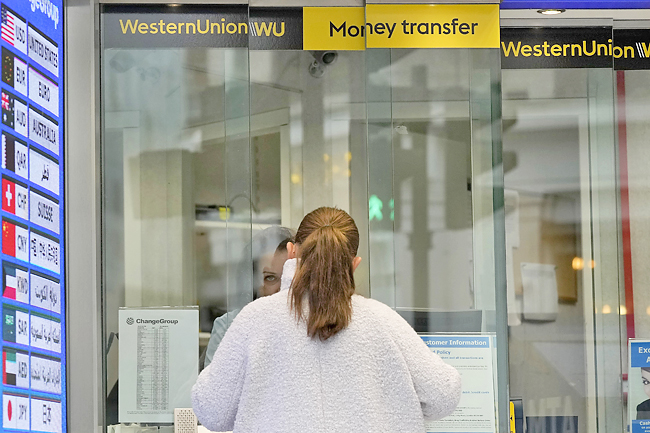LONDON (AP) – The British pound stabilised in Asian trading yesterday after plunging to a record low a day earlier, as the Bank of England and the British government tried to soothe markets nervous about a volatile United Kingdom (UK) economy.
The instability began to have real-world impacts, with several British mortgage lenders withdrawing deals amid concern that interest rates may soon rise sharply.
The pound was trading at around USD1.08 yesterday morning. On Monday it plunged to USD1.0373, the lowest since the decimalisation of the currency in 1971, on concerns that tax cuts announced on Friday by Treasury chief Kwasi Kwarteng would swell government debt and fuel further inflation.
Late Monday the central bank said it was “closely monitoring’’ the markets and would not hesitate to boost interest rates when it next meets in November to curb inflation that is running at 9.9 per cent.
The UK Treasury also sought to reassure markets, saying it would set out a medium-term fiscal plan on November 23, alongside an economic forecast by the independent Office for Budget Responsibility.

The statements did little to ease misgivings about the government’s economic policies, with the pound staying well below the USD1.12 level it held before Kwarteng’s announcement on Friday.
Some analysts warned that the statements from the bank and the Treasury were “too little, too late.”
“There is no rate increase today and speculators will enjoy the prospect of two months of Bank of England inactivity if the statement is taken at face value,” said chief investment strategist at Edison Group Alastair George.
The government plans to cut GBP45 billion (USD49 billion) in taxes at the same time as it spends more than GBP60 billion to cap energy prices that are driving a cost-of-living crisis.
Kwarteng and Prime Minister Liz Truss, who replaced Boris Johnson as prime minister on September 6, are betting that lower taxes and reduced bureaucracy eventually will generate enough additional tax revenue to cover government spending.







